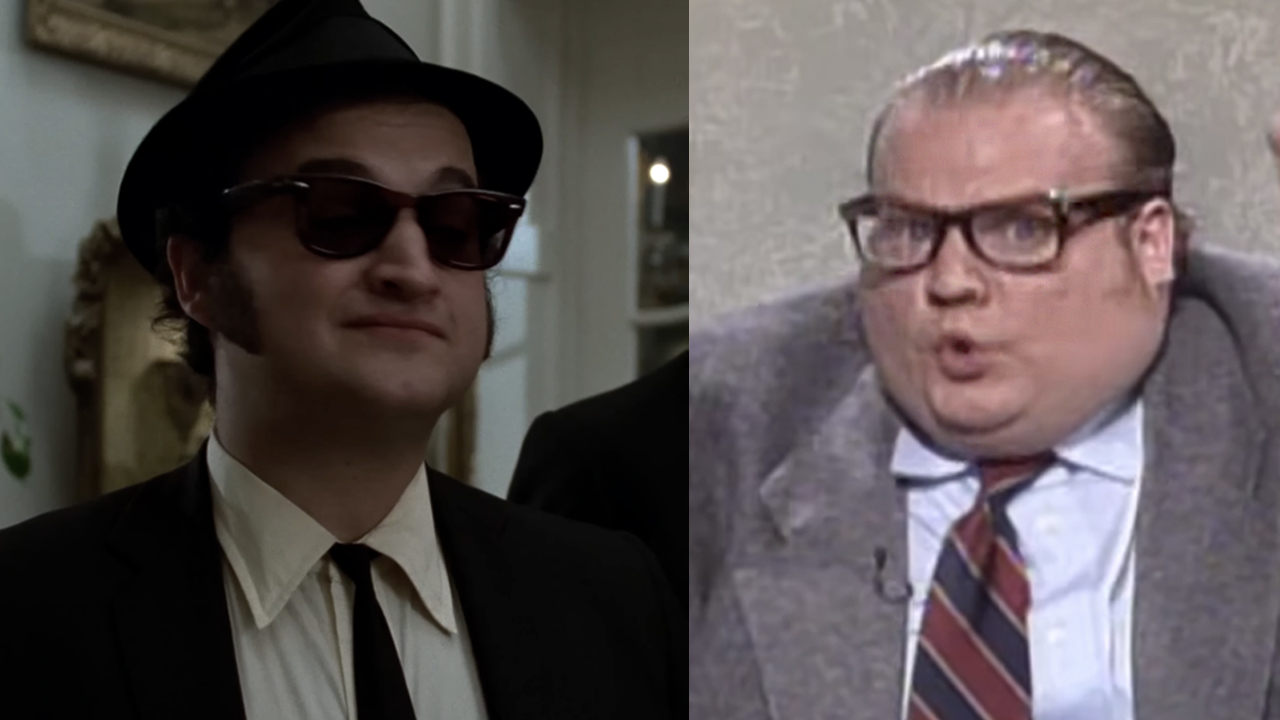‘You Can't Trust Anything He Says Or Does’: The Special, Detailed Way Hugh Grant Helped Maintain The Mystery With His Heretic Character
Hugh Grant went the extra mile in the crafting of his creepy Heretic character.
SPOILER WARNING: The following article contains major spoilers for the film Heretic. If you have not yet seen the new horror movie, proceed at your own risk!
When Hugh Grant’s Mr. Reed is first introduced in Heretic, he seems like a perfectly normal guy. He takes a weirdly long time to open the front door to his house, but he comes across as genial and intelligent… and it takes a minute to recognize that he has some terrifically sinister intentions. By the time you get to the second act of the movie, you recognize that nothing he says can be fully trusted – and that provided an exciting acting opportunity for the actor to do a full deep-dive into who the character really is.
Prior to the arrival of Heretic in theaters, I had the great pleasure of dissecting the truth about Mr. Reed via interviews with the filmmakers and star, and they all revealed the extra special work that went into bringing the furtive antagonist to life. While talking with writer/directors Scott Beck and Bryan Woods, I pointed directly to the fact that even his name doesn’t seem to be real (“Mr. Reed” is a homophone-esque slant on “Mystery”), and Woods noted that there is an interesting evolution in Hugh Grant’s villainous performance that sees his true face slowly revealed over the course of the film leading to that wild ending:
That's a great question, and I love that the name led you there because in our mind, that is not his actual name. Who knows what his actual name is. You're getting a piece of him. I think as the movie evolves or devolves or however you see it, I think he's starting to shed layers. Hugh does, in his performance, you see real parts of it come out, especially as things get really traumatic in the final act of the film – without spoiling anything. Hugh really starts stripping layers back on Mr. Reed and you just see some real raw truth there. But yeah, he's a bit of an enigma for sure.
Mr. Reed’s commentary and perspectives certainly suggest that he is a legitimate academic when it comes to the subject of religion, and it’s clear that he has dedicated much of his life to his studies. But it’s impossible to say if anything he tells Sister Barnes (Sophie Thatcher) and Sister Paxton (Chloe East) about his educational background is legitimate. Deciphering the truth and the fiction is practically impossible… at least based on a first viewing of the film.
That reality about Mr. Reed was something that Hugh Grant evidently had a fulfilling time approaching in his preparation for the role. After speaking with Bryan Woods and Scott Beck, I had the chance to ask the actor about how he approached the character’s litany of lies, and he told me that it was an aspect of the script that led him to develop specific notes for this performance. Said Grant,
How did I work out what was true and what was false? Very good question. And rather like in that miniseries I did call The Undoing, I had two sets of notes in my script. One for the outward character – the outward Mr. Reed – what he's thinking doing, and what the inner one is thinking and doing. And then I would do takes that sometimes lent more on one and sometimes more on the other, or try and blend them, but yes. So you, you can't trust anything he says or does.
I also asked if he had created a real name for Mr. Reed, and Hugh Grant said he had – but he couldn’t specifically remember what it was. The next week, I had a follow-up interview with Scott Beck and Bryan Woods, and I asked if they remembered the name he had come up with, and they couldn’t, but they did still marvel at the actor’s preparation and approach. Said Beck,
I'm sure it's in notes back and forth. I can't say it comes to mind immediately. That's what's fascinating, is like the back and forth with Hugh was an insanely amazing process. Because it would be as minute of details as 'What's the first name? Like, what happened at age seven?'
Clearly, knowing what Mr. Reed was like when he was a little child isn’t something that has an obvious impact on the events that play out in Heretic, but it was information that Hugh Grant was able to use for himself in fleshing out the character. Beck continued,
CINEMABLEND NEWSLETTER
Your Daily Blend of Entertainment News
All these things that you could argue make no difference to the experience of the film, and yet, I could also argue the converse, which is like, it matters to every aspect of who Reed is. Because without those details, there's not a roadmap for who this man is. It dictates every single inflection that Hugh makes in terms of making a point as Mr. Reed, and that process of the back and forth was unlike anything we had experienced.
After earning raves from critics following its premiere at the Toronto International Film Festival, Heretic is now playing in theaters everywhere, and after doing battle with the comedy The Best Christmas Pageant Ever during its opening weekend, it finished in second place at the box office.

Eric Eisenberg is the Assistant Managing Editor at CinemaBlend. After graduating Boston University and earning a bachelor’s degree in journalism, he took a part-time job as a staff writer for CinemaBlend, and after six months was offered the opportunity to move to Los Angeles and take on a newly created West Coast Editor position. Over a decade later, he's continuing to advance his interests and expertise. In addition to conducting filmmaker interviews and contributing to the news and feature content of the site, Eric also oversees the Movie Reviews section, writes the the weekend box office report (published Sundays), and is the site's resident Stephen King expert. He has two King-related columns.









